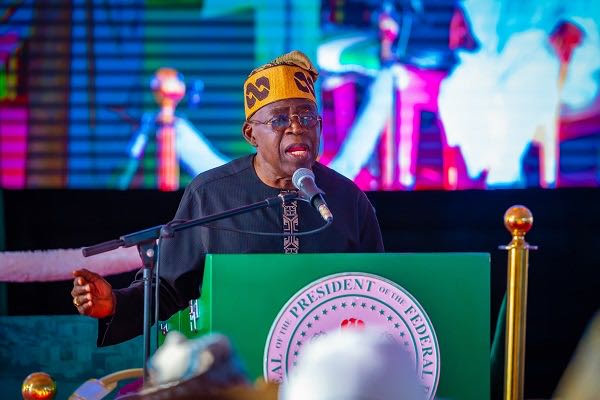The Presidency has responded to a report published in the New York Times criticizing the Nigerian economy as facing the worst trajectory in a very long time.
The report was titled, ‘Nigeria Confronts Its Worst Economic Crisis in a Generation’, and was published on June 11.
Special Adviser to the President on Information and Strategy, Bayo Onanuga, on Sunday reacted to the report credited to Ruth Maclean and Ismail Auwal’s, and he claimed the story reflected the typical predetermined, reductionist, derogatory and denigrating way foreign media establishments reported African countries for several decades.
The Special Adviser on Information and Strategy stated that due to the ‘misleading’ nature of the report, the government must clarify misconceptions about the economic policies of President Bola Tinubu’s administration, which began at the end of May 2023.
He described the report, which is based on several interviews, as overly biased and overly negative, pointing out that it completely overlooks the positive developments in the economy and the ameliorative policies being implemented by both central and state governments.
According to the presidential aide, Tinubu inherited them.
“As a respected economist in our country once put it, Tinubu inherited a dead economy. The economy was bleeding and needed quick surgery to avoid being plunged into the abyss, as happened in Zimbabwe and Venezuela,” he noted.
Onanuga stated that the government’s policy direction in May/June 2023, which included the removal of the fuel subsidy and the unification of multiple exchange rates, was informed by the historical context.
According to the presidential aide, Nigeria had sustained a fuel subsidy regime for decades, costing $84.39 billion between 2005 and 2022, despite facing significant infrastructural deficits and a pressing need for improved social services for its citizens.
Onanuga also alleged that the state oil firm, NNPCL, the sole importer, had amassed trillions of Naira in debts for absorbing the unsustainable subsidy payments in its books.
“The budget itself had a striking feature: it planned to spend 97 percent of revenue servicing debt, with little left for recurrent or capital expenditure. The previous government had resorted to massive borrowing to cover such costs. Like oil, the exchange rate was also being subsidized by the government, with an estimated $1.5 billion spent monthly by the CBN to ‘defend’ the currency against the unquenchable demand for the dollar by the country’s import-dependent economy.
“By keeping the rate low, arbitrage grew as a gulf existed between the official rate and the rate being used by over 5000 BDCs that were previously licensed by the Central Bank. What was more, the country was failing to fulfil its remittance obligations to airlines and other foreign businesses, such that FDIs and investment in the oil sector dried up, and notably Emirate Airlines cut off the Nigerian route,” he said.
Onanuga said to deal with the cancer of public finance, Tinubu on his first day rolled back the subsidy regime and the generosity that spread to neighbouring countries. Then, his administration floated the naira.
He said, “After some months of the storm, with the naira sliding as low as N1,900 to the US dollar, some stability is being restored, though there remain some challenges. The exchange rate is now below N1500 to the dollar, and there are prospects that the naira could regain its muscle and appreciate to between N1000 and N1200 before the end of the year.
“The economy recorded a trade surplus of N6.52 trillion in Q1, as against a deficit of N1.4 trillion in Q4 of 2023. Portfolio investors have streamed in as long-term investors. When Diageo wanted to sell its stake in Guinness Nigeria, it had the Singaporean conglomerate, Tolaram, ready for the uptake. With the World Bank extending a $2.25 billion loan and other loans by the AfDB and Afreximbank coming in, Nigeria has become bankable again. This is all because the reforms being implemented have restored some confidence.
“The inflationary rate is slowing down, as shown in the figures released by the National Bureau of Statistics for April. Food inflation remains the biggest challenge, and the government is working very hard to rein it in with increased agricultural production.
“The Tinubu administration and the 36 states are working assiduously to produce food in abundance to reduce the cost. Some state governments, such as Lagos and Akwa Ibom, have set up retail shops to sell raw food items to residents at a lower price than the market price.
“The Tinubu government, in November last year, in consonance with its food emergency declaration, invested heavily in dry-season farming, giving farmers incentives to produce wheat, maize, and rice. The CBN has donated N100 billion worth of fertiliser to farmers, and numerous incentives are being implemented. In the western part of Nigeria, the six governors have announced plans to invest massively in agriculture.
“With all the plans being executed, inflation, especially food inflation, will soon be tamed.
“Nigeria is not the only country in the world facing a rising cost of living crisis. The USA, too, is contending with a similar crisis, with families finding it hard to make ends meet. US Treasury Secretary Janet Yellen raised this concern recently. Europe is similarly in the throes of a cost-of-living crisis. As those countries are trying to confront the problem, the Tinubu administration is also working hard to overturn the economic problems in Nigeria.
“Our country faced economic difficulties in the past, an experience that has been captured in folk songs. Just like we overcame then, we shall overcome our present difficulties very soon.”
Get instant and latest news updates via Our WhatsApp Community or Google News online channel.

